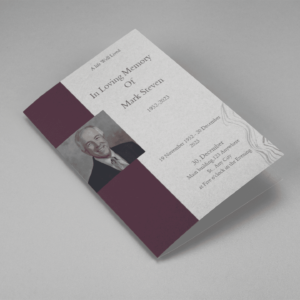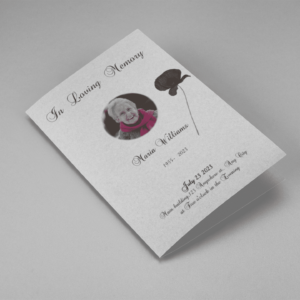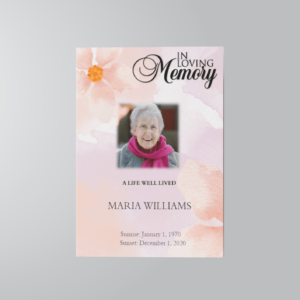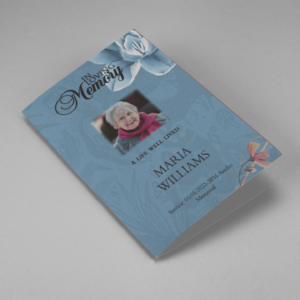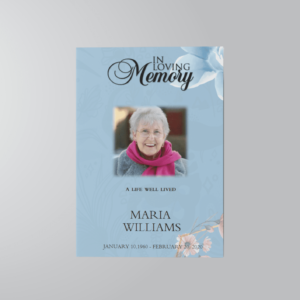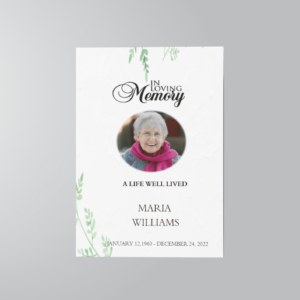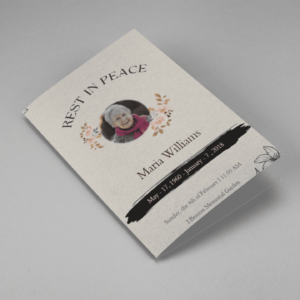Obituary Examples In Spanish: Honoring a Life with Grace
Losing a loved one is a deeply personal experience, and crafting an obituary to honor their memory is a meaningful way to share their story with others. When writing an obituary in Spanish, it’s important to choose words that convey respect, love, and the impact the deceased had on those around them.
Understanding Cultural Sensitivities
When writing obituaries in Spanish, it’s essential to consider cultural sensitivities and nuances. Different Spanish-speaking communities may have varying customs, traditions, and expressions of grief. By embracing cultural diversity and incorporating culturally relevant elements, you can create an obituary that resonates with the intended audience.
The Power of Language
Language plays a pivotal role in communicating emotions and sentiments effectively. Writing obituaries in Spanish allows you to convey feelings of love, loss, and remembrance with authenticity and sincerity. Whether you’re fluent in Spanish or seeking professional translation services, choosing the right words can make a profound impact on readers.
Elements of an Obituary in Spanish
Nombre y Datos Personales (Name and Personal Information)
Begin the obituary with the full name of the deceased, along with their age, place of residence, and date of passing.
Ejemplo: María López, de 78 años, residente de Miami, falleció pacíficamente el 15 de febrero de 2024.
Familiares Sobrevivientes (Surviving Family Members)
Mention immediate family members who are left behind, such as spouses, children, and siblings. You can also include grandchildren, nieces, and nephews if desired.
Ejemplo: Le sobreviven su esposo, Juan López, sus hijos, Marta y Carlos, y sus nietos, Ana y Jorge.
Logros y Pasiones (Achievements and Passions)
Highlight the accomplishments, hobbies, and passions of the deceased. This could include their career achievements, community involvement, or any special talents.
Ejemplo: María dedicó su vida a su familia y a su pasión por la jardinería, dejando un legado de amor y belleza en su jardín.
Detalles del Servicio (Service Details)
Provide information about the funeral or memorial service, including the date, time, and location. You can also include any requests for donations or flowers in lieu of gifts.
Ejemplo: Se llevará a cabo un servicio conmemorativo en la Funeraria San José el sábado 20 de febrero a las 10 a.m.
Despedida y Palabras Finales (Farewell and Final Words)
Conclude the obituary with a heartfelt farewell and any additional information or sentiments you wish to share with readers.
Ejemplo: María será recordada por su amor incondicional, su espíritu generoso y su sonrisa contagiosa. Que descanse en paz.
Tips for Crafting Obituaries in Spanish
Be Sensitive to Cultural Differences: Consider the cultural background of the deceased and their family when selecting language and expressions.
Keep it Personal: Share anecdotes, memories, and reflections that capture the essence of the individual’s life and personality.
Seek Feedback: Consult family members and friends for input and feedback to ensure the obituary accurately reflects the life and legacy of the deceased.
Use Clear and Concise Language: Avoid jargon or overly complex language, opting instead for clarity and simplicity to effectively communicate your message.
Embrace Emotion: Don’t shy away from expressing emotions such as love, gratitude, and sorrow, as they are integral to the grieving process.
Spanish Obituary Pamphlets
Spanish obituary pamphlets, or folletos de obituario en español, play a crucial role in commemorating the lives of loved ones within Spanish-speaking communities. These obituary pamphlets often include biographical information, photos, and messages of remembrance. They serve as a tangible keepsake for mourners, offering comfort and solace during a difficult time. By providing a lasting tribute to the deceased, Spanish obituary pamphlets help preserve their memory and legacy for future generations. With thoughtful design and meaningful content, these pamphlets honor the life and impact of the departed, providing a source of healing and remembrance for those left behind.













